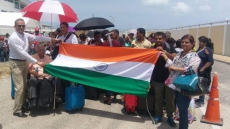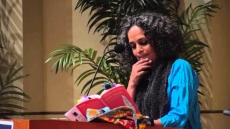The number of Rohingya refugees who fled Myanmar to Bangladesh since late August has reached 480,000, challenging efforts to care for them, UN spokesman Stephane Dujarric said on Tuesday.
"The Office for the Coordination of Humanitarian Affairs (OCHA) says that the number of Rohingya refugees who have fled Myanmar into Bangladesh since late August has now topped 480,000," he said. "This brings the total number of Rohingya refugees in Bangladesh to more than 700,000 people."
The Rohingya, a Muslim ethnic minority, are denied citizenship under a 1982 Myanmar citizenship law. The Myanmar government recognizes them as illegal immigrants from neighbouring Bangladesh.
A crackdown by Myanmar's army, launched in response to attacks by Rohingya militants on August 25, has pushed vast numbers of refugees from the stateless Muslim minority across the border with Bangladesh. The violence has incubated a humanitarian crisis on both sides of the border.
"As part of its contribution to the response plan led by the Bangladeshi authorities, a cargo jet chartered by the UNHCR (UN Refugee Agency) carrying 100 metric tons of urgently needed shelter supplies landed in Dhaka this (Tuesday), Dujarric said. "Two more aid flights are scheduled to arrive."
"Despite the efforts being made on the ground, the massive influx seeking safety is outpacing the capacity to respond," the spokesman said. "Many of those recently arrived are deeply traumatized."
The latest refugees, mainly women and children, have been telling authorities they were chased from their homes by vigilantes after a deadly rebel raid August 25 on security posts in northern Rakhine State. Their homes were then set ablaze.
"At the request of authorities in Bangladesh, UNHCR and its partners have scaled up protection and life-saving support to the new arrivals in Kutupalong and Nayapara camps," he said, adding that the refugees agency is also distributing emergency shelter kits, kitchen sets, jerry cans, sleep lamps, solar lamps and other supplies.
During his visit to Bangladesh over the weekend, High Commissioner for Refugees Filippo Grandi discussed the importance of working with Bangladeshi authorities.
He said that for now the immediate focus has to remain on fast, efficient and substantial increases of support to those who are so desperately in need.
The World Food Program has enrolled 460,000 people to receive 25 kilos of rice every two weeks for the next six months, Dujarric said. More than 200,000 people have received an emergency supply of high-energy biscuits.
He also said the WFP is especially concerned about the health of women and children arriving hungry and malnourished and is providing nearly 60,000 of them with food to date.
"The World Health Organization has helped set up a control room for the Bangladeshi Health Ministry operation in Cox's Bazar," he said. "The control room will monitor the health situation, provide early warning alerts and coordinate the work of health workers on the ground.




